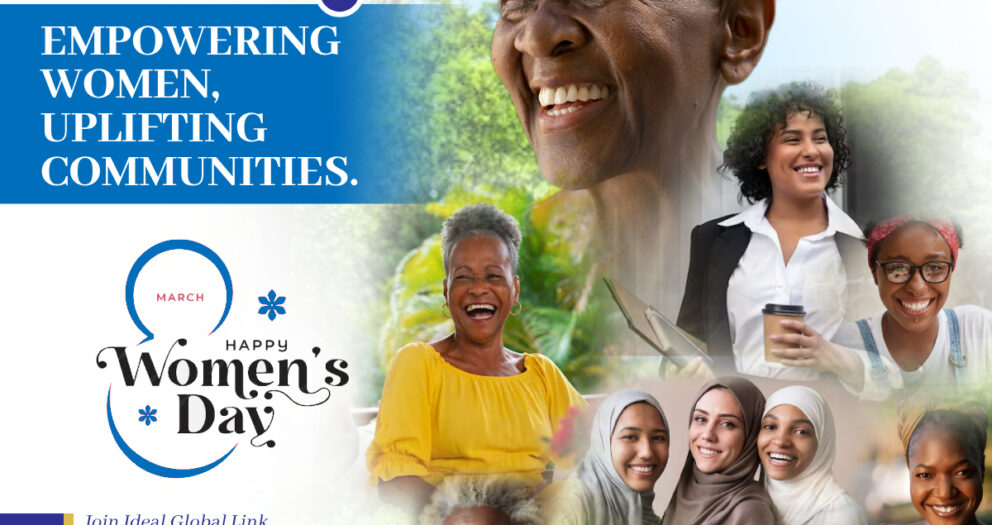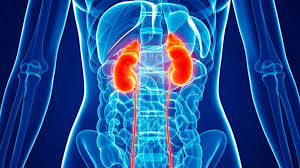Fohow Women: Champions of Health, Wealth, and Empowerment on International Women’s Day
In the bustling landscape of global business, women have emerged as powerful agents of change, driving economic growth and fostering social development. Their contributions are particularly noteworthy in ventures aimed at uplifting communities and improving health outcomes. Among such endeavors, Fohow International stands out with its mission to empower 10 million African families financially and health-wise, and the pivotal role of women in achieving this vision cannot be overstated.
Fohow International, a renowned health and wellness company, has set forth a bold mission to transform the lives of millions across Africa. At the heart of this mission lies the empowerment of women, recognizing their potential as catalysts for change within their communities. In Nigeria, women have embraced this mission with fervor, spearheading initiatives to spread Fohow's message of health and prosperity to every corner of the nation.
The significance of women's contributions to Fohow's mission in Africa cannot be understated. Through their active involvement in promoting Fohow's products and health solutions, women are not only improving their own well-being but also that of their families and communities. By embracing Fohow's ethos of "get health get wealth," these women are not just making financial gains but are also experiencing profound improvements in their health and quality of life.
One of the most remarkable aspects of Fohow's impact on women in Nigeria is the empowerment it provides. Many women who have embraced Fohow's mission have risen to become entrepreneurs, achieving financial independence and even attaining millionaire status. This newfound financial freedom not only empowers these women but also enables them to make meaningful contributions to their families and support their spouses in achieving their own aspirations.
As we celebrate International Women's Day, it is important to applaud the remarkable achievements of women in driving Fohow's mission forward in Africa. Their resilience, determination, and unwavering commitment to improving the lives of others exemplify the true spirit of empowerment and solidarity.
To all women out there, I encourage you to embrace the mission of Fohow International. By prioritizing your health and well-being while also pursuing financial prosperity, you can unlock opportunities for personal growth and empowerment. Together, let us embark on a journey towards a healthier, wealthier, and more equitable future for all. Get health, get wealth, and empower yourself to make a difference in the world.
Accelerated hypertension
Hypertension is another name for high blood pressure. It can lead to severe health complications and increase the risk of heart disease, stroke, and sometimes death. Blood pressure is the force that a person’s blood exerts against the walls of their blood vessels. This pressure depends on the resistance of the blood vessels and how hard the heart has to work. Almost half of all adultsTrusted Source in the United States have high blood pressure, but many may not know they have it.
Hypertension is a primary risk factor for cardiovascular disease, including stroke, heart attack, heart failure, and aneurysm. Managing blood pressure is vital for preserving health and reducing the risk of these dangerous conditions. Read on to learn why blood pressure can increase, how to monitor it, and ways to keep it within a typical range.
850 Million People Worldwide Have Kidney Disease
Kidney disease is a "hidden epidemic" affecting more than 850 million people worldwide, renal experts say.
That's twice the number of diabetics (422 million) and more than 20 times the number of people with cancer (42 million) or HIV/AIDS (36.7 million).
But most people don't realize that kidney disease is a major health issue.
"It is high time to put the global spread of kidney diseases into focus," said David Harris and Adeera Levin of the International Society of Nephrology. Harris is the group's president and Levin is the past president.
They noted that kidney diseases often cause no early symptoms. And many people aren't aware of their increased risk for heart problems, infections, hospitalization and kidney failure.
Chronic kidney diseases (ones lasting more than three months) affect 10 per cent of men and nearly 12 per cent of women around the world. Up to 10.5 million people need dialysis or a kidney transplant, but many don't receive these lifesaving treatments due to cost or lack of resources.
In addition, more than 13 million people suffer acute kidney injury. Some will go on to develop chronic kidney disease or kidney failure.
"Using all these sources of data, and existing estimates of acute and chronic kidney diseases, we estimate approximately 850 million kidney patients -- a number which surely signifies an 'epidemic' worldwide," Levin said.
Kidneys remove waste products and help balance the volume of fluids and minerals in the body. They also produce a hormone that tells the body to make red blood cells, the researchers explained.
Even if many patients with damaged kidney function don't feel ill, they're at high risk for other health problems, said Carmine Zoccali, president of the European Renal Association -- European Dialysis and Transplant Association.
Heart disease deaths due to chronic kidney disease are high -- 1.2 million cardiovascular deaths were attributed to kidney disease in 2013.
"The number of people with kidney diseases is alarmingly high, but the public is not aware of this reality. These patients have outcomes and kidney diseases impose a heavy financial burden on health care budgets," said Mark Okusa, president of the American Society of Nephrology.
The annual per-patient cost of dialysis is $88,195 in the United States, he said in an ASN news release.
All You Need To Know About Ovarian Cyst From The Expert
Some ovarian cysts can be associated with decreased fertility. However, it depends on the type of ovarian cyst you have. Ovarian cysts that can affect your fertility include Endometriomas.�Endometriomas (en-doe-me-tree-O-muhs) are cysts caused by endometriosis, a condition in which the tissue normally lining your uterus (endometrium) grows outside the uterus. These ovarian cysts may be associated with fertility problems. Ovarian cysts result from polycystic ovary syndrome.�Polycystic ovary syndrome (PCOS) is a condition marked by many small cysts on your ovaries, irregular periods and high levels of certain hormones. PCOS is associated with irregular ovulation, which may contribute to problems with fertility in some women




